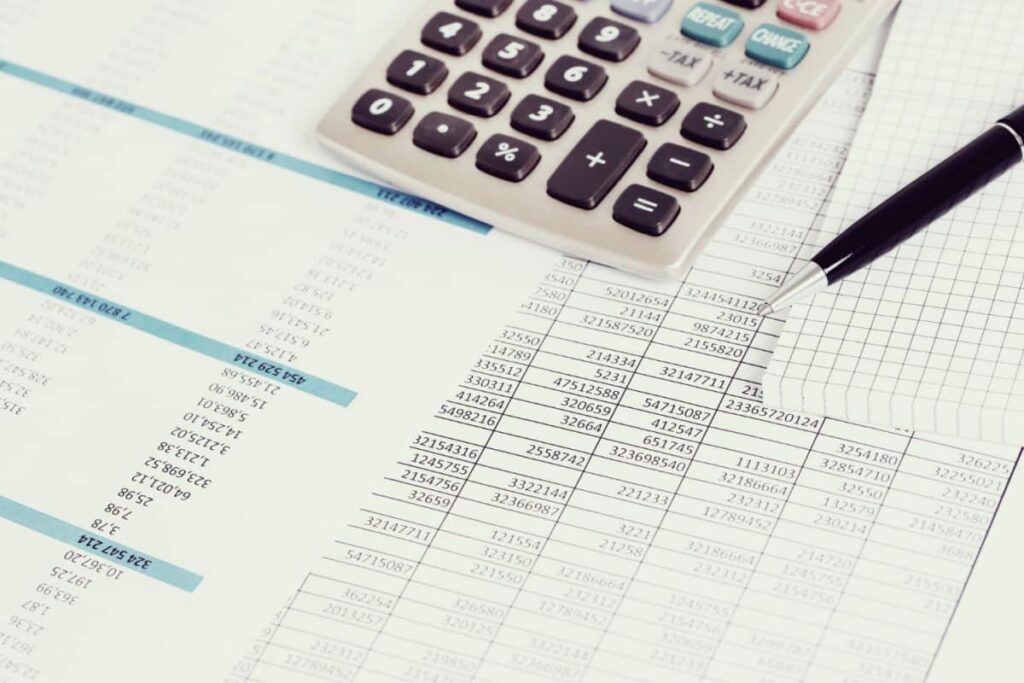Taxes might be stressful, but they don't have to be. Tax season may be used to optimise your tax refund with knowledge and forethought. This blog post will discuss practical techniques to maximise your 2024 Australian tax return.
Understanding the Basics
The Australian tax system might need clarification, but starting immediately will maximise your refund. Let's explain some key terms and concepts for Australian taxpayers.
1. Know Your Tax Brackets
Australian taxes are progressive, so the more you make, the more you pay. As of 2024, your tax bracket will determine how much you pay. Understanding your tax bracket and rate will help you plan your budget and taxes.
2. Understanding Taxable Income
Not all income is treated equally under tax law. Taxable income includes earning money from employment, government payments, investments, and business income. Tax-free income includes government subsidies and perks. Calculating your tax due requires knowing what is taxable income.
3. Deductions and How They Work
The ATO lets you deduct certain costs from your taxable income. Uniforms, travel, and investments are examples. These costs must directly affect your revenue. Knowing what deductions you may claim can drastically minimise your taxable income and tax payment.
4. The Importance of Accurate Filing
Tax return accuracy is crucial. Errors might result in fines or missing reimbursements. Declare all income and seek deductions with acceptable proof. Avoid ATO legal issues by being cautious and honest in your claims.
5. Staying Informed About Changes
Tax regulations vary annually. Staying abreast of tax system changes that might influence your 2024 return is crucial. This might involve new deductions, tax rates, or income classifications.
6. The Role of the ATO
The ATO collects and administers taxes for the government. They provide tax calculators and extensive tax advice on their website. The ATO's resources can help you understand and interpret tax law.
Mastering these essentials will help you comprehend the Australian tax system and maximise your refund. Remember, knowledge is power, especially when managing your taxes effectively.
Keeping Accurate Records
In taxes, "the devil is in the details" is especially true for proper record-keeping. Australians may need help finding the receipt, invoice, and statement organisation. Still, get ready for tax season and maximise your refund.
Effective tax administration requires detailed records of all financial activities throughout the year. Bank accounts, invoices, travel logs, and diary entries for specific claims are included. A comprehensive journal of your home office work hours might make all the difference if you claim deductions.
Two things make this approach beautiful. First, organising your documents simplifies tax return filling. Without having to search for documentation, you can confidently fill out your return, knowing your claims are supported by evidence. Second, having your data structured and available is helpful if the ATO has questions or audits you. Your thoroughness makes the audit process easier and less stressful.
Digital technology makes accurate record-keeping easier. Scan and save receipts digitally with applications and software to reduce paper clutter and make document retrieval faster. Digital technologies generally categorise expenditures, making it easier to determine deductions.
After filing a tax return, the ATO requires taxpayers to preserve their data for five years. Thus, being prepared for the current year and having a long-term system that documents your financial history are both important.
Keeping meticulous records may seem tedious, but it pays off at tax time. It gives you the confidence to claim all your deductions and the assurance that you can prove them if needed. In tax law, diligent record-keeping is your greatest protection.
Claiming All Eligible Deductions
Claiming all applicable deductions is one of the best strategies to optimise your Australian tax return. Many taxpayers lose valuable refunds because they don't know what they may claim or are unsure of their eligibility. Understanding and using the several deductions can lower your taxable income and raise your refund.
Work-related costs dominate deductions. This includes clothes, safety gear, work-related travel, and job-related education. The direct relationship between spending and revenue is key. You can recover these expenditures if you travel for work or attend conferences without employer reimbursement.
Since remote work has grown more common, home office expenditures have too. Home-based workers can deduct some office expenditures. This might include internet, power, and office furniture depreciation. The ATO stipulates deduction calculations, including simpler procedures for modest costs.
Try deducting charity gifts and investing expenditures. Tax-deductible donations to registered organisations can easily lower your taxable income. If you have assets, you can claim expenditures like portfolio management, interest on borrowed money, and investment advising fees.
Moreover, specific professions and industries have unique deductible items. For example, teachers can claim certain classroom materials, while tradespeople might deduct the cost of tools or protective gear. Researching or consulting a professional about industry-specific deductions you may be entitled to is beneficial.
Another often overlooked area is the potential for deductions related to personal insurance policies, like income protection insurance. Premiums related to assessable income are usually tax-deductible.
Claiming deductions can drastically affect your tax return, so claim just what you're eligible to and keep records. The Australian Taxation Office (ATO) actively checks deductions and fraudulent claims can result in fines. While it's necessary to claim what you're entitled to, it's also important to follow the law.
Ultimately, recognising the various deductions can impact your tax refund. It requires some effort and potentially some research or professional advice, but the financial benefits make it worthwhile. Remember, every deduction you're entitled to, and the claim is the money back in your pocket, making a thorough understanding of these opportunities a key aspect of savvy financial management.
Utilising Tax Offsets and Rebates
In addition to deductions, tax offsets and rebates are essential to maximise your Australian tax refund. These can reduce your tax bill and repay you. Like uncovering hidden gold in the tax system that many miss.
Tax credits, or offsets, directly lower your tax bill. Different from deductions, which lower taxable income. Low- and middle-income taxpayers benefit from the Low and Middle-Income Tax Offset (LMITO). You qualify for this offset if your income falls within a particular range, which might lower your tax bill or raise your refund.
Seniors can benefit from SAPTO. It reduces taxes for retirees with specified age and income requirements. This offset is particularly helpful as it acknowledges the unique financial circumstances faced by retirees.
The Private Health Insurance Rebate, often overlooked, is also crucial. This refund helps cover qualified private health insurance rates. Your refund depends on your income, age, and family status.
The Family Tax Benefit, which isn't a tax offset, can drastically affect your tax status. Your family's income determines this child-rearing advantage.
Taxpayers in rural locations receive offsets. Remote and isolated Australians receive the Zone Tax Offset due to their greater cost of living and obstacles.
Small company owners must also know about offsets and rebates. For instance, the Small Business Income Tax Offset reduces business income tax for qualified small enterprises.
Knowing your tax offset and rebate eligibility is vital. As with deductions, claiming something you don't deserve might cause ATO issues. When properly used, offsets and rebates can significantly lower your tax burden or enhance your refund.
Australian tax offsets and refunds are crucial to lowering your tax bill. You may avoid overpaying and increase your tax refund by learning about these perks and which ones apply to you. This tax preparation strategy involves a thorough financial and personal analysis, but the savings might be worth it.

Superannuation Contributions
Australian taxation relies on superannuation contributions, which combine retirement planning with tax efficiency. Knowing how to use superannuation contributions might maximise your tax refund.
Superannuation is a mandatory retirement savings program for Australians. Beyond statutory employer payments, individuals can make additional contributions, which can be tax-beneficial.
Personal super contributions are one of the most direct ways to leverage superannuation for tax purposes. These are contributions you make from your after-tax income. The beauty of these contributions lies in their potential tax deductibility. You can deduct super fund contributions from your taxable income. This method might benefit those slightly above a tax bracket threshold or reduce their annual taxable income.
Another avenue to explore is salary sacrificing into super. You negotiate with your employer to forgo some of your pre-tax compensation in return for super fund contributions. These donations minimise taxable income since they are made before tax. This technique boosts retirement savings and lowers taxes.
However, super donation caps are crucial. The amount you may contribute to superannuation each year before paying taxes is limited. Knowing the current limits is vital as they are updated regularly. Exceeding these caps can result in extra tax, negating some benefits of making additional contributions.
Government co-contribution encourages low- and middle-income earners. If you fulfil certain conditions, the government may match your after-tax super fund contributions. This enhances retirement savings and is free money, making it worth considering for qualifying individuals.
Consider engaging a financial professional when contemplating superannuation contributions as a tax strategy. They may advise you on contribution limitations, taxes, and retirement planning according to your financial circumstances.
Superannuation payments enhance Australian tax management. Whether through personal contributions, salary sacrificing, or taking advantage of government schemes, these contributions can provide significant tax benefits while bolstering your retirement savings. Understanding the laws, maintaining within contribution limitations, and assessing how this method fits into your financial plan is crucial to any tax strategies. Superannuation may meet your tax demands and secure your financial future with careful preparation.
Investment Strategies
It takes skill to comprehend investments and their tax effects. Investment management in Australia can considerably affect your tax bill and refund. Smart tax planning and investing methods can boost your finances.
Capital gains tax (CGT) is important while investing. This tax applies to asset sales profits like property or shares. Timing is a useful CGT management strategy. You usually get a 50% CGT deduction on earnings from holding an asset for over 12 months. A year of owning an appreciated item can significantly minimise the tax you owe on profits upon selling it.
Investment portfolio owners must comprehend profits and losses. In years with capital losses, you can offset capital gains to lower your taxable income. When you have a lot of taxable income from other sources, 'loss harvesting' might be advantageous.
Also, consider dividend income. Dividends from dividend-paying stocks are usually taxed. However, Australian taxation has franking credits. These tax credits indicate the company's paid taxes on dividends. These credits can reduce your tax bill or even repay you if they exceed it.
Taxable interest comes from savings accounts and term deposits. You must appropriately disclose interest income on your tax return. Although minor, undeclared interest might arouse ATO concerns and lead to needless investigation or fines.
Property investors must understand rental income and cost taxes. You must record rental income, but you can deduct property expenditures, including repairs, upkeep, agency fees, and loan interest. Over time, you can depreciate property items and the building's construction cost.
Superannuation and tax-effective investment bonds are also worth considering. These can be part of a long-term investment strategy and have better tax treatment than direct investments.
Finally, investment-related tax concerns are complicated and require professional counsel. Financial advisors and tax professionals can assist you in negotiating various laws and possibilities with personalised advice. They can also notify you of tax law changes affecting your investments.
Investment plans and tax planning must be balanced. Understanding the tax consequences of your assets, timing tactics, franking credits, and loss harvesting can improve your tax outcome. Informed and intelligent investing can help you expand your wealth and reduce taxes.
Seeking Professional Help
Finding your way through the Australian tax system might feel like a maze. Expert guidance might be invaluable to maximise deductions and maximise your tax return. Tax Warehouse and other qualified tax professionals can help you improve your tax situation with their experience and tailored counsel.
Tax Warehouse's extensive tax experience shows how professional help may improve your tax return. Our registration as tax agents is important since the Australian Taxation Office (ATO) only authorises tax advisors. This credential verifies their skills, expertise, and continuous training to provide accurate tax advice.
Maximising deductions is a major benefit of our service. Understanding deductions is complicated by tax law. Our experts examine your financial records to find all possible deductions to maximise tax savings. This comprehensive method may reveal undiscovered deductions.
We also offer personalised counsel. Each person's income, spending, and deductions are different. Our professionals assess your situation and provide tailored assistance to meet your personal and financial goals. This personalised approach offers accurate and situation-specific guidance.
Online tax return simplicity and cost are further benefits of using our services. Online tax filing is incredibly convenient in the digital era. Online applications are accepted, and a certified tax agent will help you file your taxes. This streamlines a difficult and time-consuming procedure, making it easy.
Service affordability is also important. At Tax Warehouse, we believe optimising your tax return should be relatively inexpensive. Our price is straightforward, and their worth typically surpasses the cost, especially with a tax refund rise.
Registered tax agents like Tax Warehouse may be a good choice for effective tax system navigation. Our experience in optimising deductions, individualised guidance, and quick and inexpensive online service make us a great choice for tax return optimisation. Our skilled advice will help you maximise your taxes, so you can confidently approach tax time.
Conclusion
Our investigation of optimising your Australian tax return in 2024 shows that knowledge, organisation, and strategic preparation may go far. From understanding the Australian tax system to meticulously keeping records, claiming all eligible deductions, using tax offsets and rebates, making smart superannuation contributions, and considering investment strategies, each step improves your tax outcome.
The lesson is that tax season should not be dreaded. It might be a chance to avoid losing money if handled properly. Maintaining precise records throughout the year simplifies tax return filing and ensures you have supporting evidence.
Every deduction must be claimed. People sometimes overlook large refunds because they don't know what they may claim. Understanding deductions for jobs, charity, and education may drastically lower your taxable income.
Focus on tax offsets and refunds. These can lower taxes for low- and middle-income individuals and the elderly. Superannuation payments can also provide immediate tax savings and safeguard your retirement.
Tax-conscious investment management can also make a difference. Expert guidance from qualified tax professionals like Tax Warehouse may be useful when tax regulations appear daunting. Their experience may help you optimise deductions and refunds through the tax maze.
In conclusion, maximise your tax refund in 2024 by being proactive, knowledgeable, and strategic. Understanding the tax system, being organised, and getting expert advice will help you profit from tax time. Optimising your tax return is not simply a seasonal activity but a cornerstone of smart financial management since every dollar you save or receive in refunds goes towards your bigger financial goals.

Content Summary
- This blog post discusses strategies to maximise your 2024 Australian tax refund.
- It emphasises understanding the Australian tax system, including tax brackets, taxable income, deductions, accurate filing, staying informed about changes, and the role of the Australian Taxation Office (ATO).
- Understanding these basics is crucial for managing your taxes effectively.
- Accurate filing is essential, as errors can result in fines or missing reimbursements.
- Staying informed about changes, such as new deductions, tax rates, or income classifications, can help avoid legal issues.
- Keeping accurate records is essential for effective tax administration.
- Digital technology can simplify record-keeping and make it easier to determine deductions.
- The ATO requires taxpayers to preserve their data for five years after filing a tax return.
- Claiming all eligible deductions is another strategy to optimise your Australian tax return.
- Work-related costs dominate deductions, while home office expenses can be deducted.
- Deductions can also include charity gifts, investing expenditures, and deductions related to personal insurance policies.
- Researching or consulting a professional about industry-specific deductions and recognising deductions related to personal insurance policies is beneficial.
- The ATO actively checks deductions and fraudulent claims, but following the law is important.
- In conclusion, understanding the various deductions can significantly impact your tax refund.
- Recognising these opportunities is a key aspect of savvy financial management, and understanding the deductions is essential for maximising your tax refund.
- Tax offsets and rebates are essential for maximising Australian tax refunds.
- Offsets like the Low and Middle-Income Tax Offset (LMITO) can lower your tax bill and repay you.
- Seniors can benefit from the Private Health Insurance Rebate, which covers qualified private health insurance rates.
- The Family Tax Benefit can affect your tax status, and offsets are available to taxpayers in rural locations.
- Small business owners can also benefit from the Small Business Income Tax Offset.
- Superannuation contributions are another tax-beneficial strategy for Australians.
- Personal contributions, such as salary sacrifices into super, can be deducted from taxable income, while salary sacrifice into super can minimise taxable income.
- However, super donation caps are crucial; exceeding them can result in extra tax.
- Government co-contribution can also be beneficial for low- and middle-income earners.
- Consider advising a financial professional on contribution limitations, taxes, and retirement planning.
- Superannuation payments can enhance Australian tax management and provide significant tax benefits while bolstering retirement savings.
- Investment strategies in Australia can significantly impact your tax bill and refund.
- Capital gains tax (CGT) is a crucial factor, with a 50% deduction on earnings from holding an asset for over 12 months.
- Understanding profits and losses, 'loss harvesting', dividend income, franking credits, rental income, property expenses, superannuation, and tax-effective investment bonds is essential.
- Professional counsel is necessary to negotiate various laws and possibilities and notify you of tax law changes affecting your investments.
- Tax Warehouse and other qualified tax professionals can help you navigate the Australian tax system with their experience and tailored counsel.
- They offer a comprehensive method to maximise deductions and provide personalised advice to meet your personal and financial goals.
- Online tax filing is also convenient and cost-effective, with Tax Warehouse offering online services that streamline the process.
- The price is straightforward, and their worth typically surpasses the cost, especially with a tax refund rise.
- To optimise your Australian tax return in 2024, be proactive, knowledgeable, and strategic.
- Maintaining precise records throughout the year, claiming all eligible deductions, using tax offsets and rebates, making smart superannuation contributions, and considering investment strategies can improve your tax outcome.
- Tax-conscious investment management can also make a difference, with expert guidance from qualified tax professionals helping optimise deductions and refunds through the tax maze.
- In conclusion, optimising your tax return is not just a seasonal activity but a cornerstone of smart financial management, as every dollar saved or received in refunds goes towards your bigger financial goals.
Frequently Asked Questions
Use all applicable deductions, such as work-related expenditures, school fees, and charity donations, to maximise your tax refund. Use LMITO if appropriate. Additional tax-deductible superannuation contributions are advised. Precise and complete records must support claims throughout the year.
You can deduct home office expenditures if you work from home. Internet expenses, energy, and office equipment depreciation are included. The Australian Taxation Office simplifies deduction calculation for modest costs.
After filing a tax return, the ATO requires you to maintain your records for five years. You should save receipts, invoices, bank statements, and other evidence to support your deduction claims.
Consider the LMITO, SAPTO, and Private Health Insurance Rebate. These can reduce your tax payable. Additionally, for families, the Family Tax Benefit may impact your overall tax situation.
If your tax situation is complicated, expert advice may be helpful. Registered tax agents like Tax Warehouse can provide customised advice, maximise deductions, and file tax returns accurately and efficiently. They know the tax system and can help you maximise your return.















